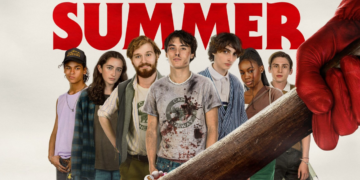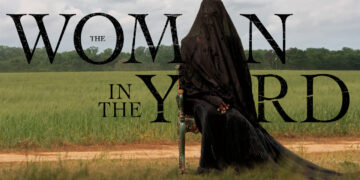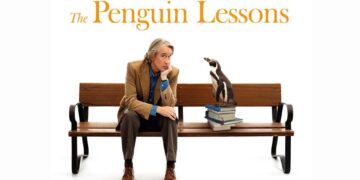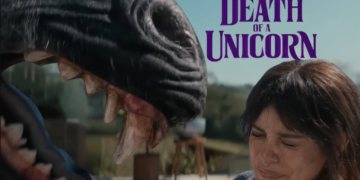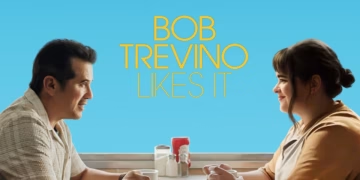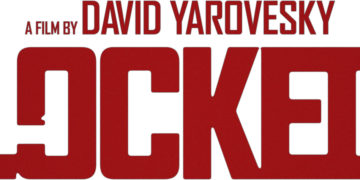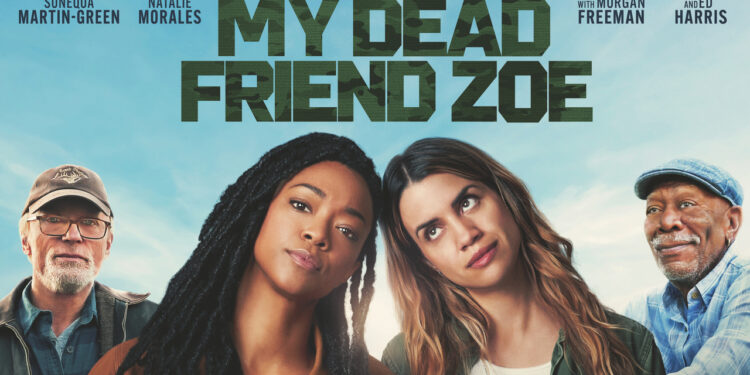The title speaks for itself—two best friends, yet only one remains. But how did Zoe die? For an hour and 41 minutes, My Dead Friend Zoe unravels a poignant exploration of grief, memory, and the bonds that transcend loss. Inspired by the true story of a U.S. Army Afghanistan veteran, this deeply affecting drama is penned by Kyle Hausmann-Stokes and A.J. Bermudez, with Hausmann-Stokes also taking the helm as director. The film introduces us to Merit (Sonequa Martin-Green) and Zoe (Natalie Morales), two inseparable friends bound by their shared experiences as women in the military. Through car karaoke, intimate conversations over meals, and unwavering support in the face of condescension from their male counterparts, their friendship is both a sanctuary and a lifeline in an environment that often feels unrelenting.
Despite their closeness, Merit and Zoe are stark contrasts. Merit is determined, academically inclined, and deeply rooted in her family’s traditions, spending time at their lakeside cabin nestled within a Christmas tree farm. She envisions a future beyond the military, pursuing higher education and building a life far from war. Zoe, by contrast, is direct and pragmatic, with no concrete plans beyond service. She dismisses the value of education, sees no future for herself outside the military, and carries the weight of having no familial ties. For Zoe, the world is an isolating place—until Merit becomes her anchor, tethering her to something deeper, something that feels like home.

The army may have brought Merit and Zoe together, but their reasons for enlisting couldn’t have been more different. For Merit, service was a legacy—ingrained in her very being by her grandfather, a retired veteran. For Zoe, it was a last resort, the only escape from a life that offered her no other way out. Now, with Zoe gone, Merit is left to navigate both civilian life and the weight of her grief. Each day blurs into the next, consumed by a monotonous routine that feels as lifeless as she does. She wakes, eats a quiet breakfast, methodically cleans off her running shoes, and sets out for a jog—dressed in the same tan shirt and black shorts, a subtle echo of her military past.
Though physically present, she is mentally adrift, trapped in a cycle of grief that renders the world around her distant and muted. In an effort to reintegrate, Merit is mandated to attend a veterans’ group therapy program, led by Dr. Cole (Morgan Freeman). The support group is composed of fellow former soldiers, all bearing their own scars—some visible, others buried deep. Together, they confront the lingering trauma of service, seeking a path forward in a world that no longer resembles the one they once knew.
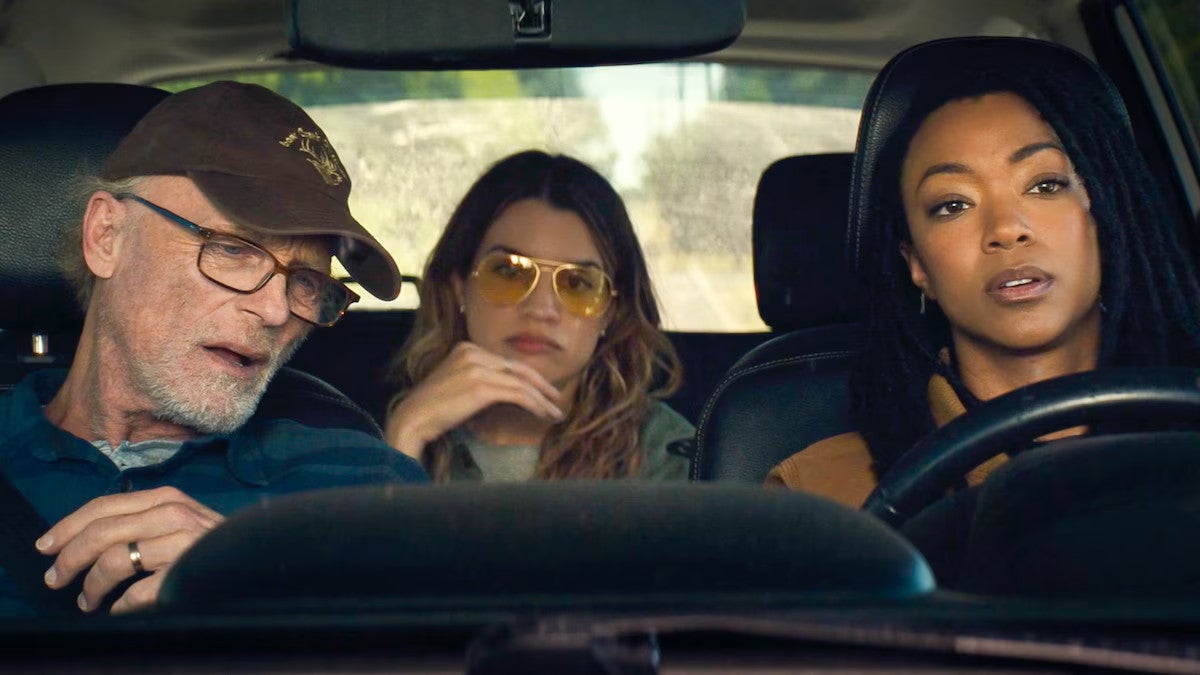
Merit grapples with the fading memories of the military and the unresolved tensions between her grandfather whose health is declining from early onset Alzheimer’s. She also finds herself at odds with her VA counselor, torn between the past she’s trying to make sense of and the future she struggles to embrace. Dr. Cole serves as a guiding force in Merit’s journey, a guardian angel of sorts, gently pushing her toward healing. ‘Courage is moving forward—it is not being unmoved,’ he reminds her. My Dead Friend Zoe delves into the complexities of grief, loss, and generational trauma, emphasizing the necessity of confronting the past in order to truly live. The film explores the weight of silence—the belief that keeping pain locked away is a form of protection. Grief and trauma can transform a person, shifting their sense of self.
As the film poignantly expresses, ‘When you lose someone, you don’t want to know who you are without them.’ Merit and her grandfather embody this internal struggle, both veterans who have buried their emotions, letting unresolved trauma fester rather than confronting it and setting themselves free. For much of the film, Merit clings to the notion that speaking her truth will only deepen her suffering: ‘You can’t tell anyone—it’s breaking me more than I’m already broken.’ But in reality, it is the act of unburdening herself that offers the possibility of release. As she wrestles with her grief, Zoe’s presence lingers like a shadow—an ever-present ghost of the past, a spirit refusing to fade until Merit learns to let go.
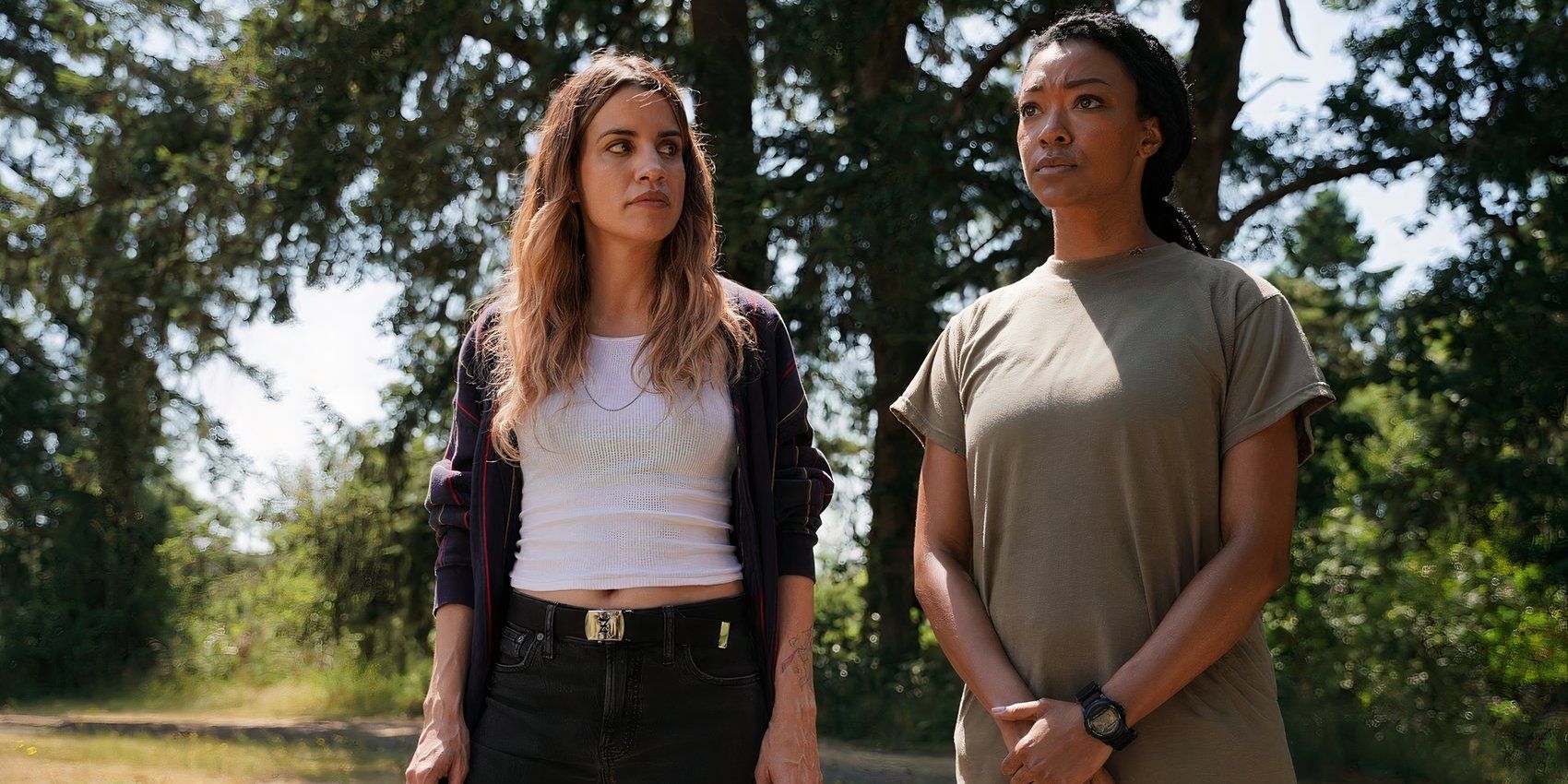
My Dead Friend Zoe masterfully mirrors Merit’s emotional state through its visual storytelling. The muted lighting and subdued color palette—dominated by shades of gray and brown, from her non-patterned clothing to her house decor and painted walls—reflect the weight of her grief, the suffocating stagnation of a life trapped in the past, and her fear of embracing an uncertain future. The film’s soundtrack, featuring tracks like Rihanna’s “Umbrella” and Labrinth’s “Power Couple,” subtly complements the narrative, enhancing the emotional journey of Zoe and Merit. Dan Romer, known for his evocative compositions, crafted the score, collaborating with artists such as Kaia Kater to enrich the film’s musical landscape.
The chemistry between the leading women crackles with authenticity, their performances deeply affecting and emotionally charged. Their bond breathes life into the film, making their characters feel tangible, their connection transcending beyond the screen. While the film is undeniably powerful and moving, its narrative feels somewhat divided—almost as if it could be two separate stories: one following Merit’s relationship with Zoe, and the other exploring her complex dynamic with her grandfather. Though both arcs are compelling, they occasionally feel like distinct threads that struggle to fully intertwine.
In the end, stories like My Dead Friend Zoe hold significant value. They bring emotionally challenging conversations to the forefront, encouraging us to normalize discussions about death and grief. As Zoe wisely says, One should engage more openly with the subject of death. While it’s undoubtedly difficult, there is life beyond loss, and in the wake of grief, a chance to discover a deeper, transformed sense of self that transcends the events that shaped us. This sentiment resonates deeply, as Merit ultimately comes to the realization: ‘My name is Merit. I served eight years in the military. I am here not because of an accident, but a person. Her name was Zoe.’
CHRISKRATING★★★★

